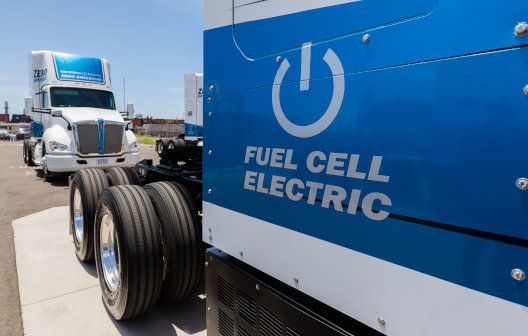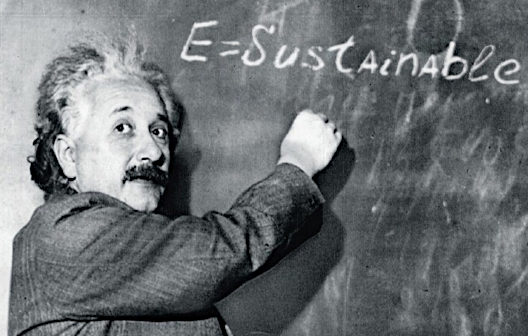j0
Chevron Announces Multiple Green Energy Collaborations
In three big announcements, Chevron, a company that dates back to 1879, is demonstrating it will aggressively partner with and develop initiatives to reduce hydrocarbons in aviation, rail, shipping, and stationary power. The company is paving the way to provide customers with the new energy sources they believe will take us into a cleaner energy future.
The collaborations, proposed partnerships, and equity ownership are with Gevo (GEVO), a maker of corn-based aircraft and other fuels, Aces Delta, LLC, which is an advanced clean energy storage project owned by Mitsubishi Power and Magnum Development. And a collaboration with Caterpillar to build a hydrogen demonstration project for transportation and stationary power.
Chevron / GEVO – Intent to Pursue Aviation Fuel
In a letter of intent, dated September 9, Gevo and Chevron say they are expected to agree to jointly invest in building and operating one or more new facilities that would process corn to produce sustainable aviation fuel. The result is expected to lower the lifecycle carbon intensity of fuels used in the aviation industry. The new facilities would also produce proteins and corn oil.
Under the proposed collaboration, Gevo would operate its proprietary technology to produce sustainable aviation fuel and renewable blending components for motor gasoline. In addition to co-investing with Gevo, Chevron would have the right to offtake approximately 150 million gallons per year to market to customers.??
The proposed investment is subject to the negotiation of definitive agreements with customary closing conditions, including regulatory approval.
Chevron / Caterpillar Hydrogen Collaboration Agreement
In a press release announcing a collaboration agreement dated September 8, Caterpillar, and Chevron outline initiatives in hydrogen demonstration projects. The projects include transportation, stationary power, and prime power.
The goal of the collaborative effort is to confirm the feasibility and performance of hydrogen for use as a commercially viable alternative to traditional fuels for rail and marine use. They also will work to demonstrate hydrogen’s use as a main source of stationary power production.
As part of the collaboration, Progress Rail, a Caterpillar company, agreed to demonstrate a hydrogen-fueled locomotive along with hydrogen-fueling infrastructure support. The rail project is expected to begin immediately at various locations across the United States.
Chevron /
Mitsubishi / Magnum Development Hydrogen Production and Storage
Chevron’s announcement on September 9 that it will acquire an equity interest in ACES Delta is another step the energy giant is making toward being a part of tomorrow’s cleaner energy. Aces Delta is a joint venture between Mitsubishi Power and Magnum Development that owns the Advanced Clean Energy Storage project. This project will produce, store and transport clean electron hydrogen at utility-scale for power generation, transportation, and industrial applications in the western United States.
The initial venture is located in Utah, adjacent to the Intermountain Power Plant, which will use clean hydrogen to produce electricity with lower lifecycle carbon emissions. Future anticipated projects include the expansion of green hydrogen supply to other Western states and the construction of connecting hydrogen infrastructure to build a regional hydrogen production, transportation, and supply network.
Chevron is working to build demand for hydrogen and the supporting technologies in heavy-duty transportation and industrial sectors where decreasing greenhouse gases has proven itself difficult.
Take-Away
The energy sector (XLE) is up 1.50% after an hour of trading (September 9), Chevron is up 1%, while the S&P rose only .33%. The combination of Chevron’s size, strength, and relationships, coupled with the technologies of companies it is partnering with to transition to more alternative fuels should help those fuels become more mainstream.
Traditional energy companies like Chevron were among the most challenged last year as transportation was brought to a crawl with the pandemic. Growing clean energy initiatives since then have continued to weigh on companies like the 140-year-old Chevron. The rapid-fire announcements this week that they have found clean energy “wingmen” would seem to benefit all involved.
Suggested Reading:
 Hydrogen Powered Transportation May Include Planes by 2025
|
 Lithium Battery vs Hydrogen Fuel Cell Batteries
|
 Investment Opportunities in Hydrogen
|
 Are There Enough ESG Stocks to Go Around?
|
Sources:
Stay up to date. Follow us:

|
